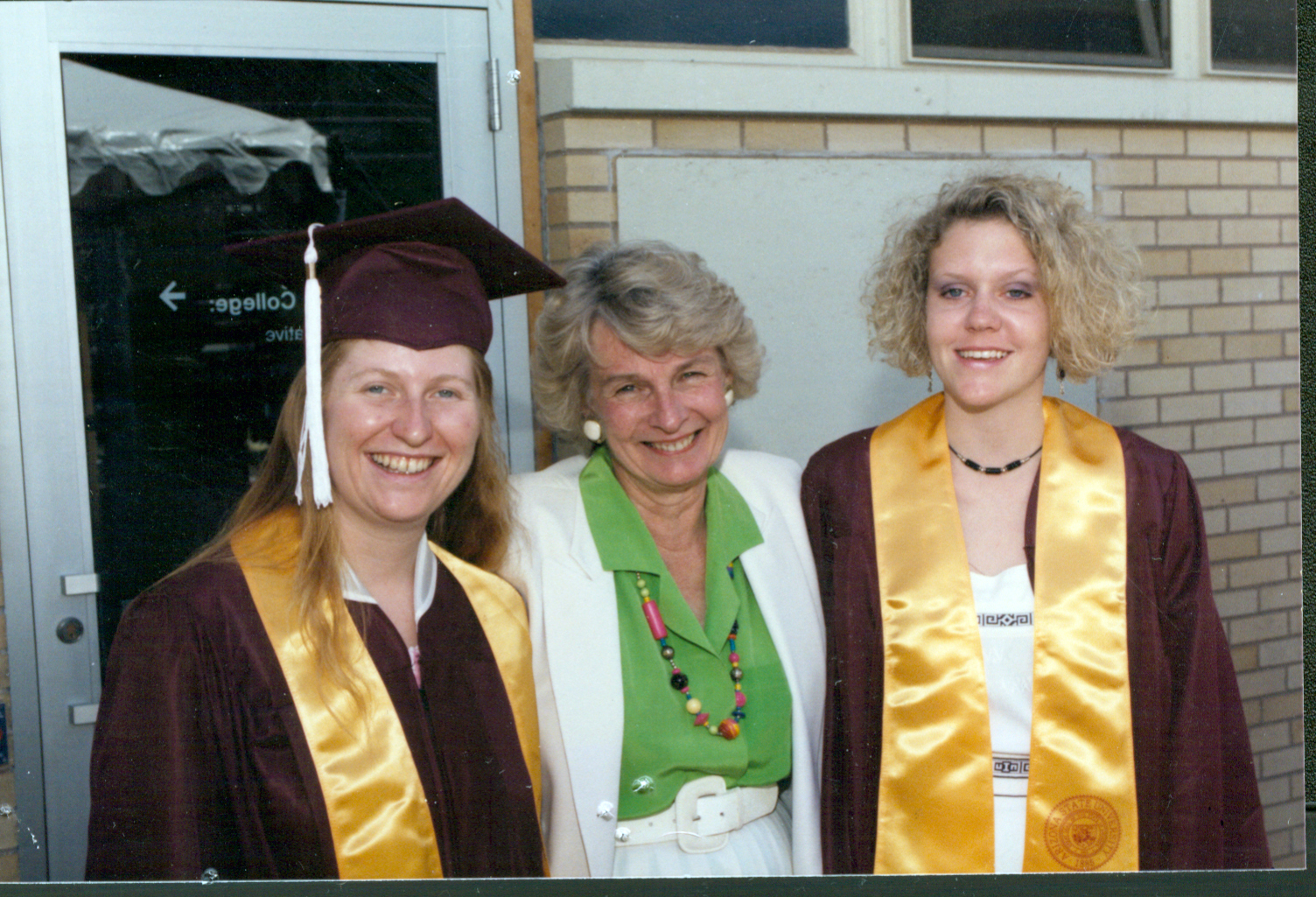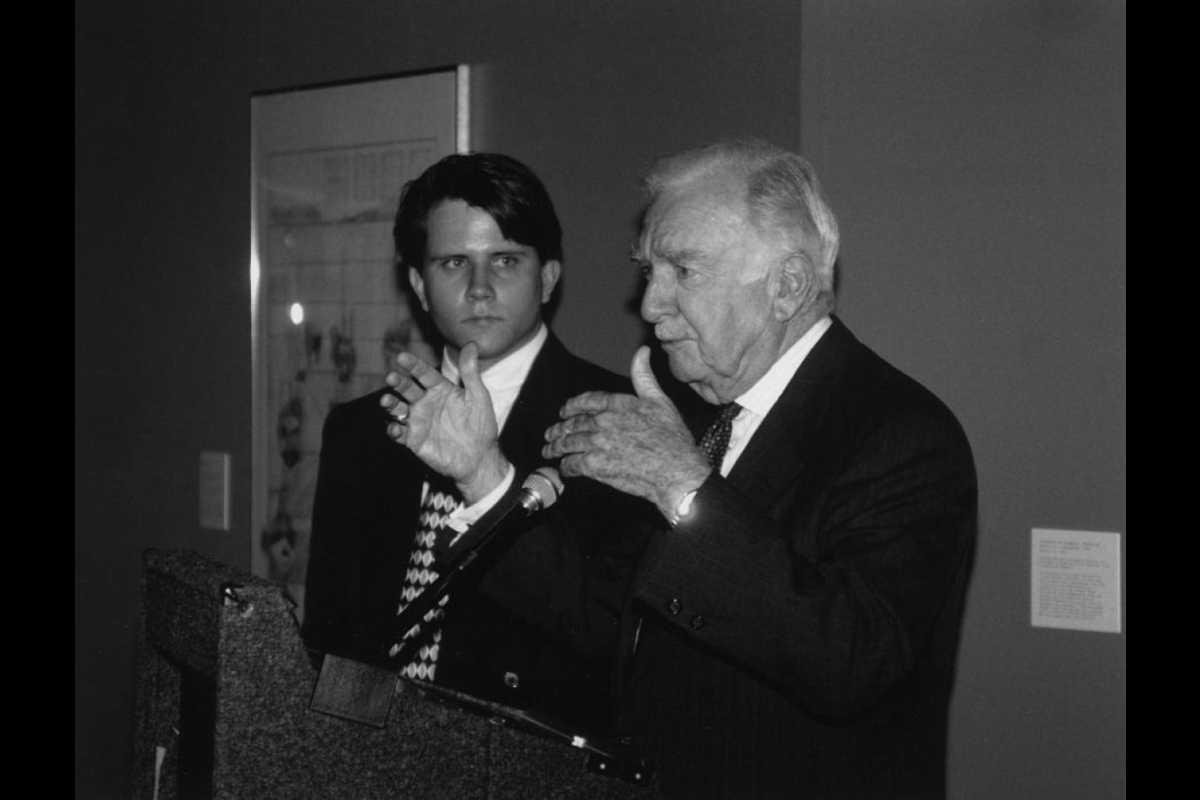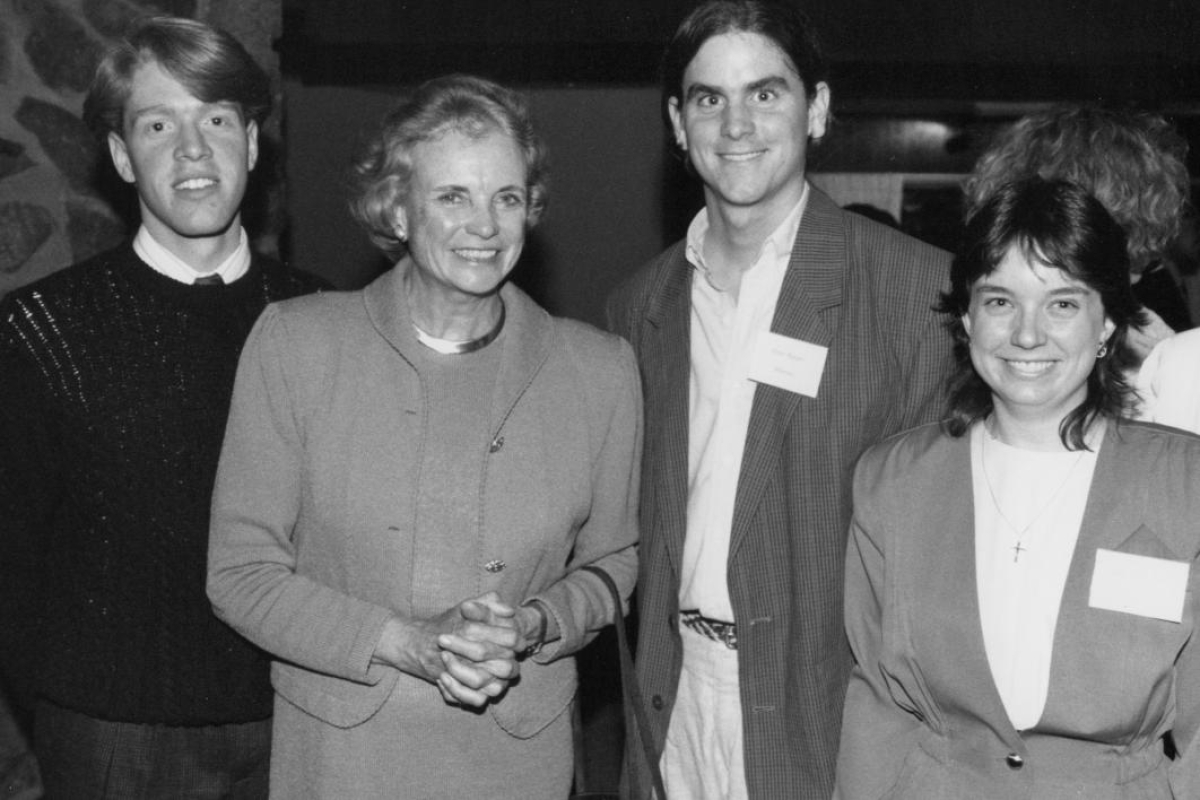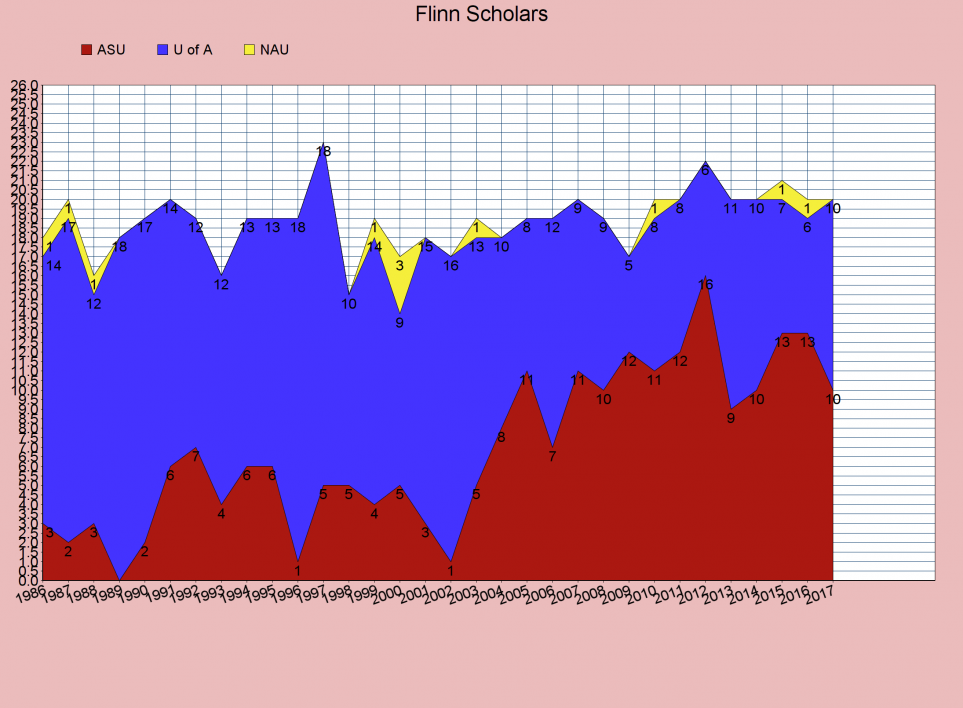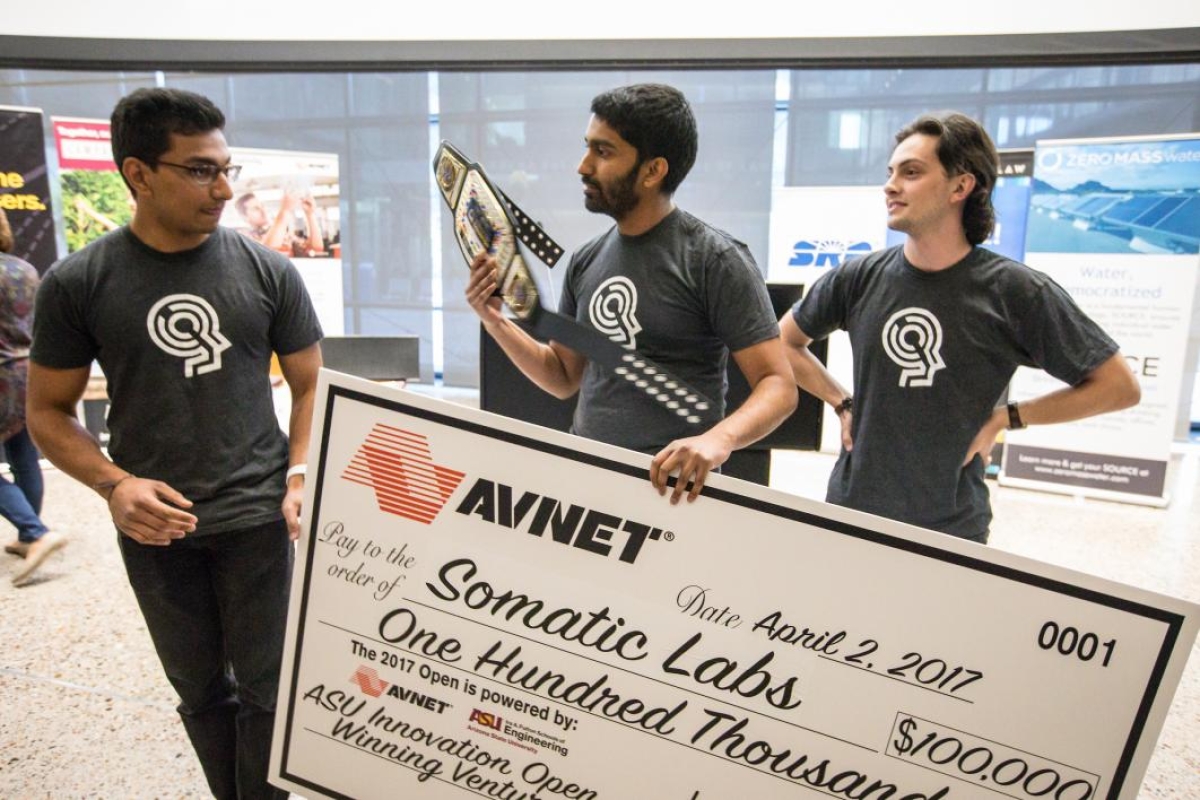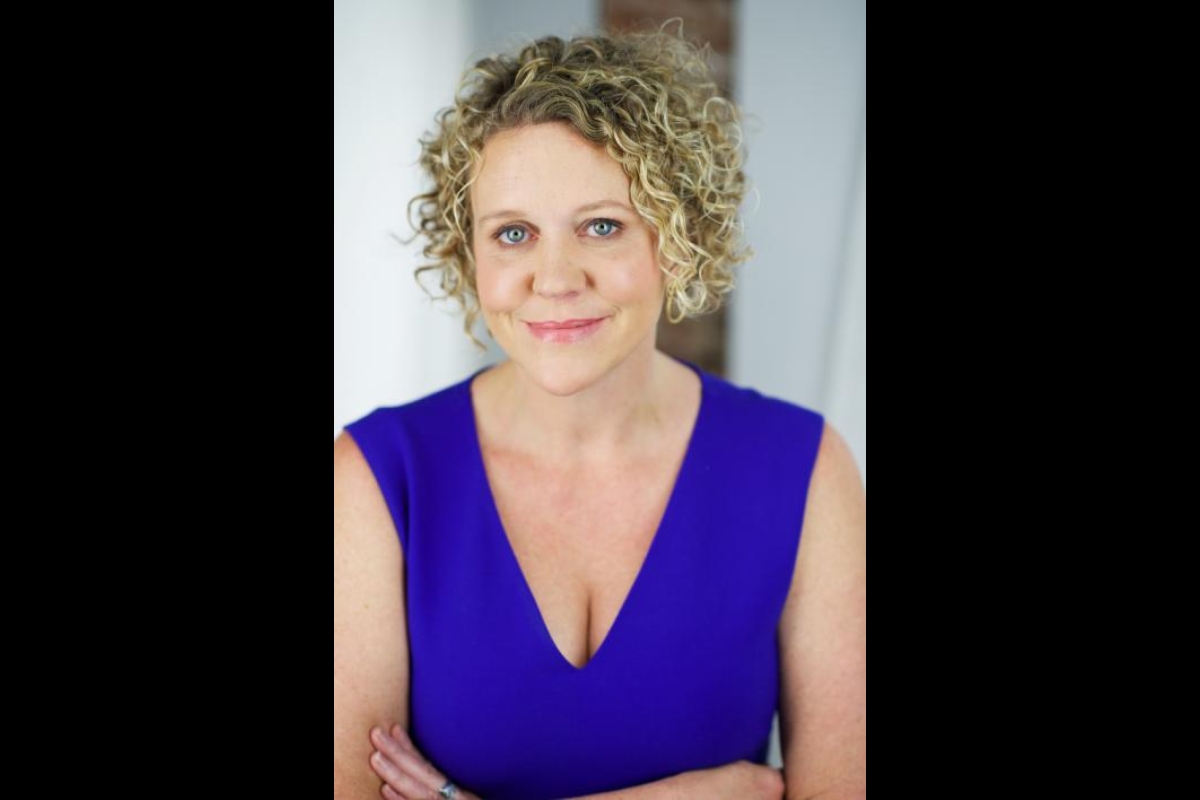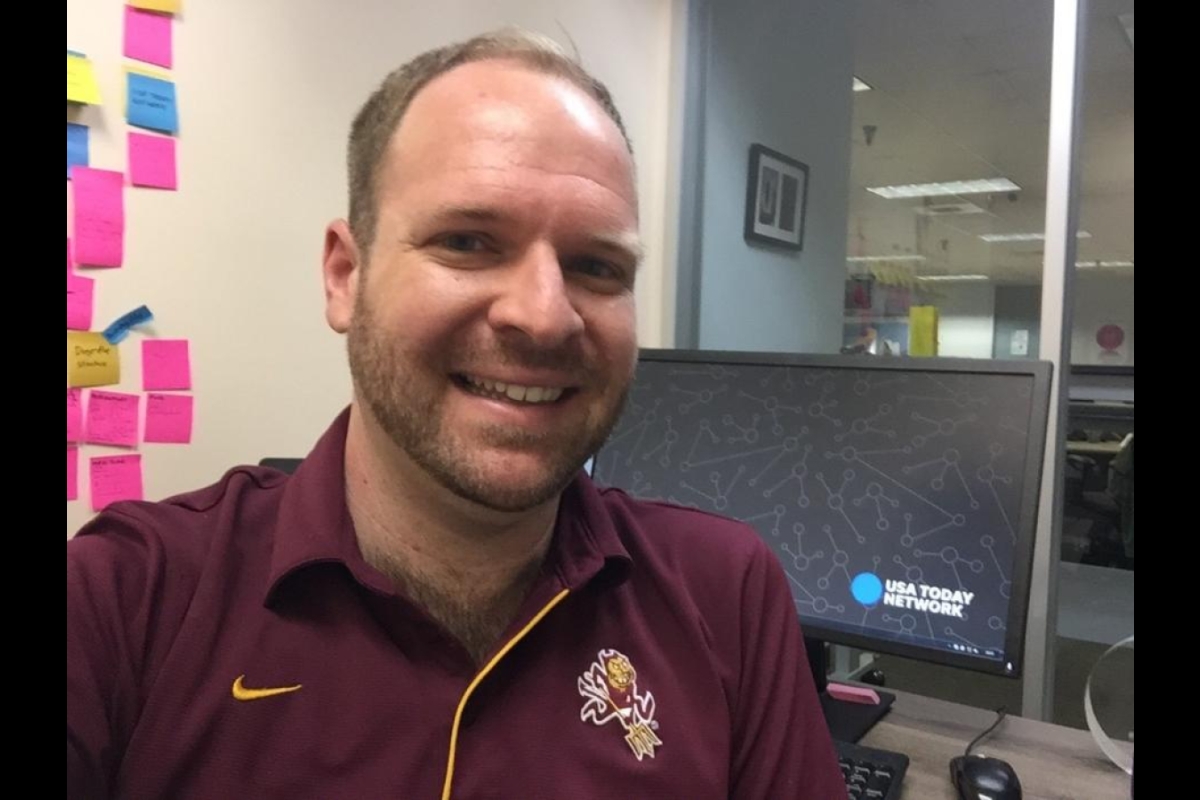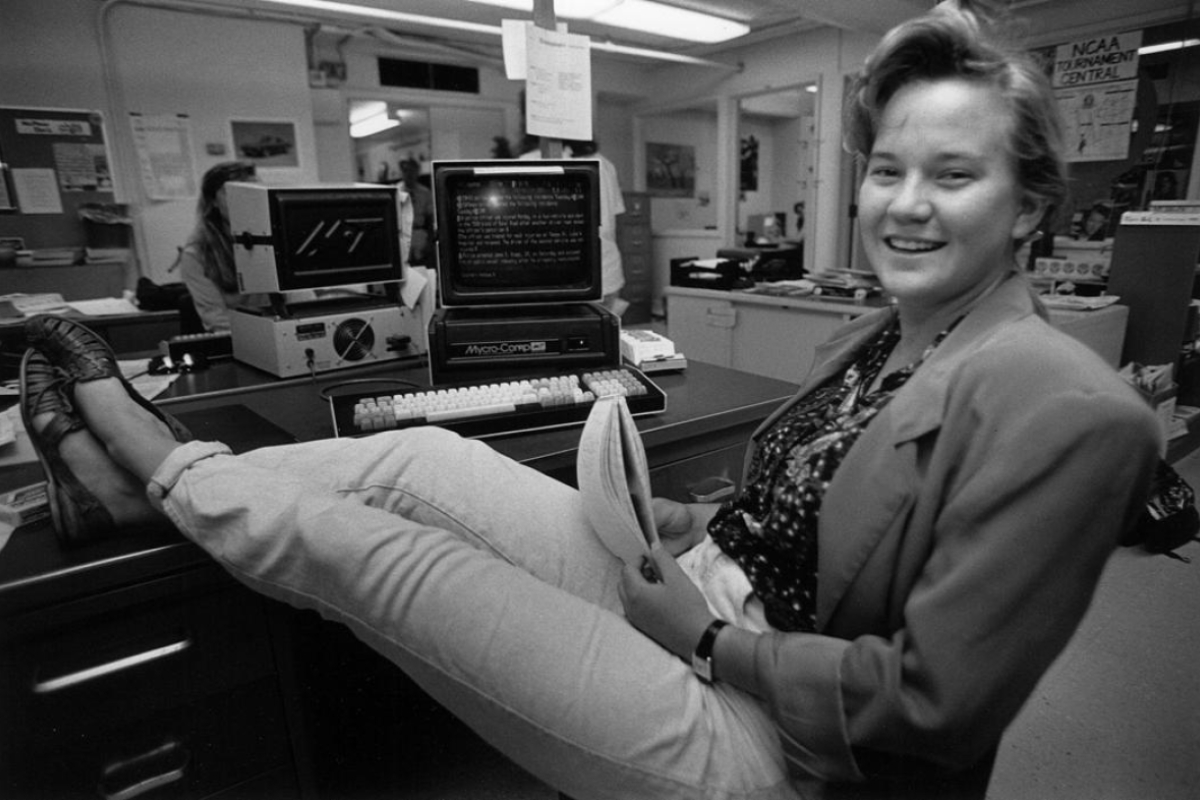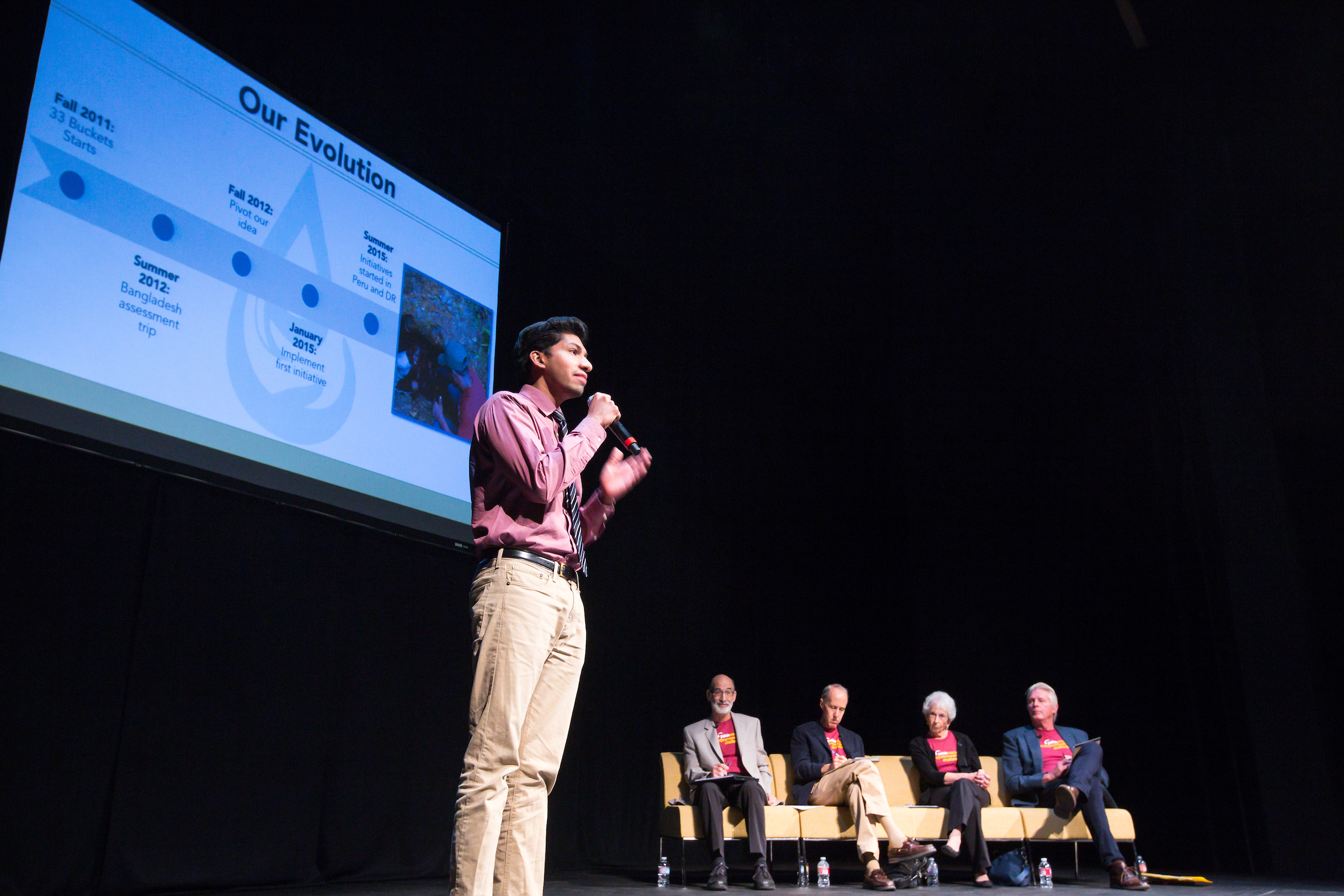A growing tradition of excellence attracts more of state's top high school graduates
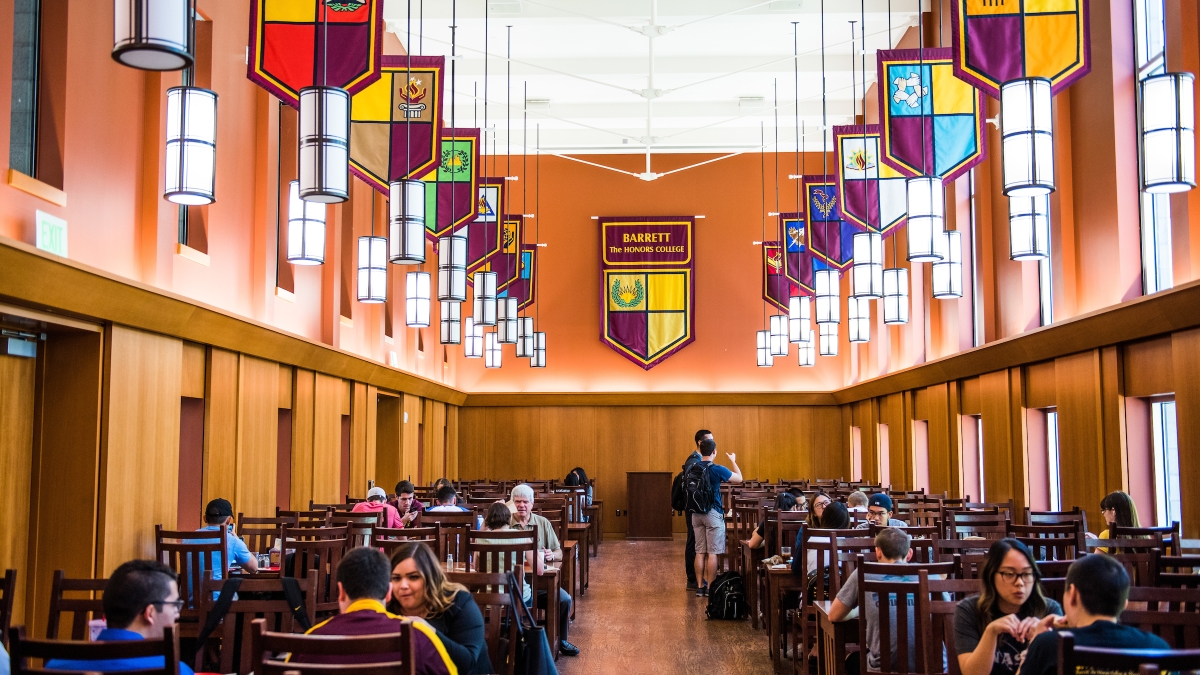
More than 30 years ago, a scholarship program was set up to coax promising young Arizonans into attending one of the state’s public universities rather than going out of state.
The Flinn Scholarship, a prestigious, merit-based scholarship, offers full tuition and other incentives to end the “brain drain” by sending about 20 top high school graduates to the honors programs at Arizona State University, the University of Arizona and Northern Arizona University.
In the beginning, few chose ASU. But in recent years, as the prestige of the university has grown — and as Barrett, The Honors College has flourished — ASU is a top destination for these top Arizona high school graduates, drawing 58 percent of the Flinn Scholars The number of scholarships has varied over the years from 16 to 23. in the past 10 years.
“I remember I was pretty chill about the interview because the attitude we were brought up with in high school was that to get a prestigious education, you had to go out of state,” said Rebecca Bruner, who was in the first group of Flinn Scholars in 1986. She went to McClintock High School in Tempe and was accepted by Swarthmore and Amherst colleges. After she received the scholarship — which nobody had heard of in 1986 — she decided that having all her tuition and expenses paid was too good to pass up.
Two of the first Flinn Scholars to choose ASU, Rebecca Bruner (left) and Sara Zervos, celebrate graduation with Barbra Barnes, director of the Flinn Scholars Program in the 1980s. Photo contributed by Flinn Foundation
“What is most encouraging about it is knowing that somebody believes in you enough to invest in your future,” said Bruner, who is now an author.
And that’s how the Flinn donorsRobert and Irene Flinn established the Flinn Foundation in 1965 as a privately endowed grant-making organization to improve the quality of life in Arizona. The nonprofit has other programs besides the scholarship. saw it — as an investment more than an award, according to Matthew Ellsworth, vice president of communications for the Flinn Foundation.
“It was targeting young people who were mostly leaving the state but had the potential to be great leaders for Arizona,” said Ellsworth, who was himself a Flinn Scholar in 1993.
The scholarship not only includes tuition and room and board, it also offers two study-abroad opportunities, a paid internship program and mentorship and cultural activities.
In the early years of the program, not many of Arizona’s best and brightest chose ASU. Only 20 percent of Flinn Scholars in the first 10 years became Sun Devils. In 1989, none of the 18 winners chose ASU.
In the inaugural group of 18 scholars in 1986, only two chose ASU at first. Bruner started at the University of Arizona and transferred to ASU in her sophomore year.
Overall, 36 percent of the 606The breakdown by numbers is 221 ASU Flinn Scholars, 374 for the University of Arizona and 11 for NAU. Flinn Scholars have gone to ASU, 62 percent to the University of Arizona and 2 percent to NAU.
Transformation at Barrett
Although Barrett, The Honors College is a bustling community within ASU, it wasn’t always so. In the 1980s, the University of Arizona had a much more established honors program than ASU, which didn’t launch the University Honors College until 1988. At that time, McClintock Hall was converted into an honors dorm and the honors professors moved their offices nearby.
ASU’s program was transformed in 2000 by the $10 million endowment from Craig and Barbara Barrett, and the initiative was later renamed Barrett, The Honors College.
“I don’t think there is any doubt that the increased number of Flinn Scholars attending ASU correlates with the changes that have been made and the development of new programs at Barrett,” said Mark Jacobs, the current dean at Barrett, who came in 2003.
“This is due to the total ASU experience becoming much more attractive to Flinn Scholars, and that experience includes stellar faculty, entire new schools with new majors possible and new and exciting research opportunities,” said Jacobs, adding that Barrett has added more courses, support services and square footage over the years.
Even though the number of Flinn Scholars on the Barrett campus at any one time is less than 50 of out a total of about 7,200 honors students, they make a difference, Jacobs said.
“Excellent, motivated, service-oriented students make a difference in every class they are in. In a very real way, it is a microcosm of the effect all honors students have on ASU,” he said. “Flinn students are a group of great students who have already been screened by a very intelligent, thorough committee of statewide status.”
Ellsworth said the foundation would like to see more scholars choose NAU, which has drawn 11 winners since 1986. That could change now that NAU is building a new honors community with living space, classrooms, a support center and a fitness center. It will open in 2018.
About 750 students apply for the scholarships every year, and Ellsworth said the foundation is reaching out to rural areas to make sure the opportunity is as accessible as possible.
“How can we ensure that we’re doing all we can to reach students of great potential who are outside of our normal area?” he said. Some high schoolsThe high schools that have produced the most Flinn Scholars who went to ASU are University High School, Tucson, 17; Mountain View High School, Mesa, 16; Corona del Sol High School, Tempe, 12; Hamilton High School, Chandler, 10; and Desert Vista and Prescott high schools, nine each. in the Phoenix area produce 20 to 30 applicants every year, as teachers, counselors and students have become familiar with the process.
Ellsworth was thrilled that the 2017 class of Flinn Scholars, currently university freshmen, included students from five schools that had never produced a winner before: Desert View High School in Tucson, Tri-City College Prep in Prescott, Mohave High School in Bullhead City, and ASU students Daniel Nguyen, the first winner from Liberty High School in Peoria, and Brittany Duran, the first from Santa Cruz Valley Union High School in Eloy.
In 2003, William Valencia was the first Flinn Scholar from Rio Rico High School. He decided to go to ASU during the interview process for the scholarship when he met Michael Crow, then in the first year of his presidency at ASU.
“His focus on access and impact and being inclusive as opposed to being exclusive — those all rang true to me,” said Valencia, who now is a program director in the College of Public Service and Community Solutions at ASU.
Life-changing travel
International travel is one of the most important Flinn benefits, added a few years after the program launched. At that time, students received a pot of money with the hope that they would study abroad at least twice. In the late '90s, the program made international travel a group trip with a second, independent study-abroad experience. For several years, the scholars went together to Hungary, which was an emerging democracy and not very Westernized. For the past five years, the scholars have traveled together to China, visiting Beijing and then staying with families in a rural area.
Ellsworth said the group trip is much better than when he traveled alone in the early 1990s.
“I had never been on a plane. I was clueless and scared. I don’t think I had near the quality experience as if I had traveled as intentionally as they do now,” he said.
The travel can be life-changing.
Valencia was majoring in supply-chain management and took Mandarin 101.
“Owing to that experience, I added Mandarin Chinese as a major, and the travel allowed me to not only broaden my horizons but to understand the context of my supply-chain education,” said Valencia, who started a consulting firm in Beijing after graduation, teaching Chinese entrepreneurs best practices and business English.
Nesima Aberra, a 2009 scholar, was a double major in journalism and global studies at ASU and traveled to Guatemala, where she did an internship learning about international development and nonprofits.
“It was really important because it made me understand that that was a viable career path and also to check my bias as a student who wanted to change the world. I learned that the world is more complicated than what you learn in the classroom,” said Aberra, who just started working as an audience engagement editor at the nonprofit Center for Public Integrity.
Taking risks
Many of the ASU Flinn Scholars have gone on to become accomplished professionals who are changing the world. The foundation doesn’t keep track of all alumni, but it does keep some statistics: Of ASU’s Flinn Scholars, 115 have gone on to earn graduate degrees, and of those, 30 have earned a second graduate degree. There are 21 ASU Flinns who have earned a medical degree and 20 who acquired a law degree.
The students are accomplished when they arrive at ASU. Nguyen, the first Flinn from Liberty High School in the Peoria Unified School District, is a freshman majoring in biological sciences who would like to be a military surgeon. He has already earned certification as an emergency medical technician from Glendale Community College.
“I got to spend some time doing what EMTs do, which influenced my outlook on my career as well. The ability to work with patients on the provider level is amazing,” he said.
Swaroon Sridhar presented the pitch for 33 Buckets at the Pakis Social Entrepreneurship Challenge in 2016. The nonprofit builds modular filters in poor communities so local people can sell clean water. Photo by Charlie Leight/ASU Now
Many of the talented alumni cite their ASU education and being able to graduate debt-free as important factors in their success.
Swaroon Sridhar said that being a Flinn Scholar allowed him to take risks.
“The financial benefits of the scholarship made it easier for me to explore my interests in Indian classical music by enrolling in Phoenix Gharana, a Scottsdale-based music school, without worrying about the costs on top of my university costs,” he said.
“Making this decision was heavily influential in my life, as I'm still very passionate about studying and performing the art.”
Being in the program also allowed him to explore entrepreneurship, which led to his work with 33 Buckets, a clean-water nonprofit he co-founded with other ASU students. A 2013 Flinn Scholar, he’s the director of business development at 33 Buckets and also a graduate student at Columbia University.
“It was the security of knowing that it was OK to spend time on things outside of my academic major's focus that allowed me to venture into social impact via 33 Buckets,” he said.
Being connected is another benefit. Last spring, three students who met at networking events for Flinn Scholars launched an entrepreneurial venture and won $100,000 to fund their project, which makes wearable technology for people with visual impairments. Shantanu Bala and Ajay Karpur, both ASU grads, created Somatic Labs with Jacob Rockland of the University of Arizona.
“The honors colleges do a wonderful job of taking a big university and making it smaller. We want our program to make it an even tighter community, not to become insular but to become mutually supportive,” Ellsworth said.
“They are eager to see one another succeed. I’m sure some of them find themselves overwhelmed by each other’s accomplishments, but they’re intent on seeing one another reach their individual goals.”
Sara Zervos, after working for decades in finance, recently launched BizzyChicks.org, a network of businesswomen to help educate younger people about financial literacy. She said that being a Flinn in 1987 made her part of a circle of academic colleagues who had curious minds and wide interests.
“As such, this circle has created a benchmark for me for 'awesome people' that I want in my life going forward,” she said.
Brian Indrelunas, a journalist and 2004 scholar, said that the scholarship and connection to other Flinns broadened his world view.
“Seeing how fellow Flinns are using what they learned in Arizona to do incredible things — in-state, around the country and around the world — is a constant source of inspiration,” Indrelunas said.
Some of the scholars have taken the message of both ASU and the Flinn Scholarship to heart.
“I’m the product of a public education, and seeing ASU deliver on its promises of accessibility and impact and having the opportunity to play some small part in that is personally and professionally fulfilling,” said Valencia.
“I owe this state a great debt, and every day when I walk into the office I see myself as repaying the state and its people for everything I have.”
Applications for the Flinn Scholarship are open through mid-October. Find details here.
More Arts, humanities and education
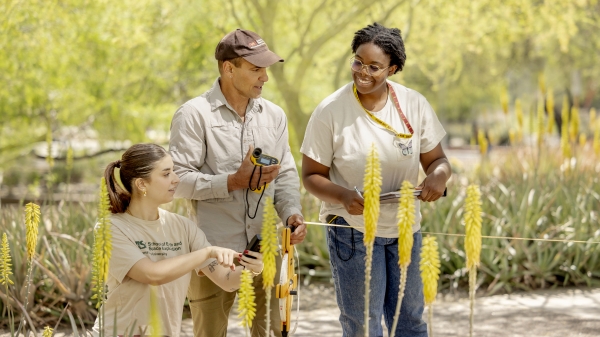
The College set to launch 15 new degree programs
The College of Liberal Arts and Sciences at Arizona State University is launching 15 new academic programs in fall 2024. Nine of those programs will include online formats, expanding learning…
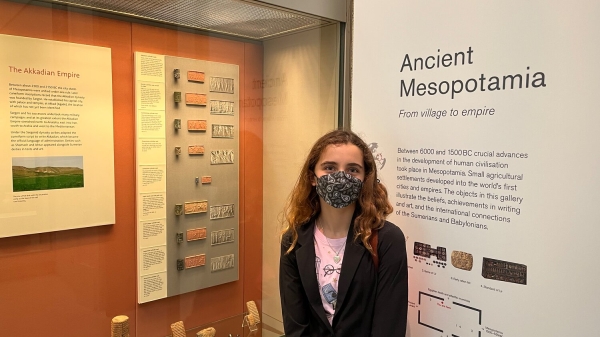
Mother–daughter duo travel abroad while advancing education through online offerings from ASU
Getting an education while seeing the world with your loved ones? Sounds like a dream come true.For 12-year-old Aanya Sosa and her mother, Beth, it’s a reality, thanks to online educational offerings…
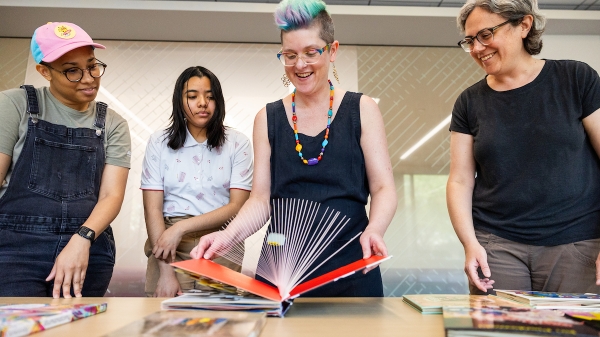
ASU Library collection is deceptively simple fun
Editor’s note: This is part of a monthly series spotlighting special collections from ASU Library’s archives throughout 2024.Arizona State University’s Eugene D. Valentine Collection is a whimsical…
